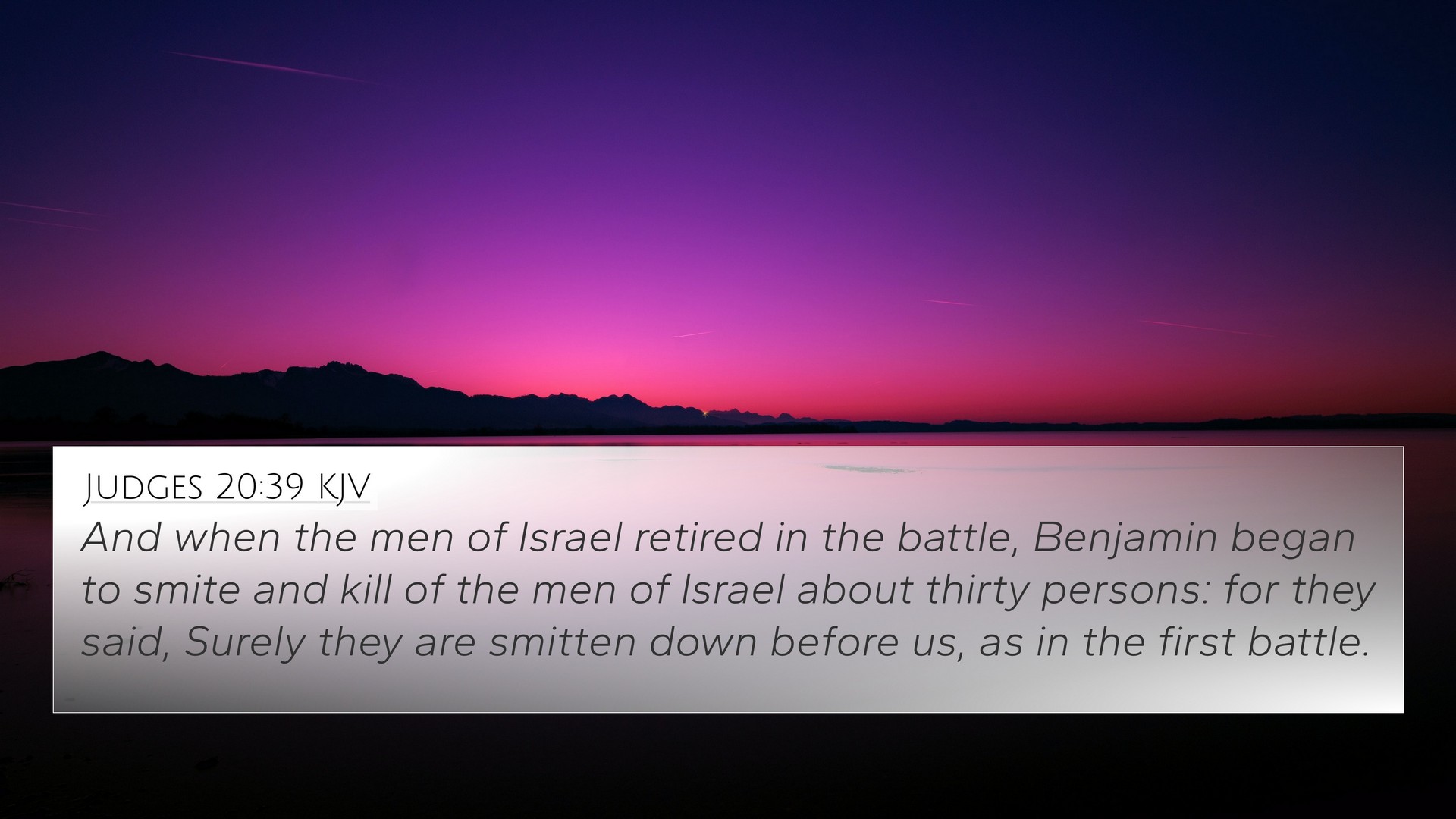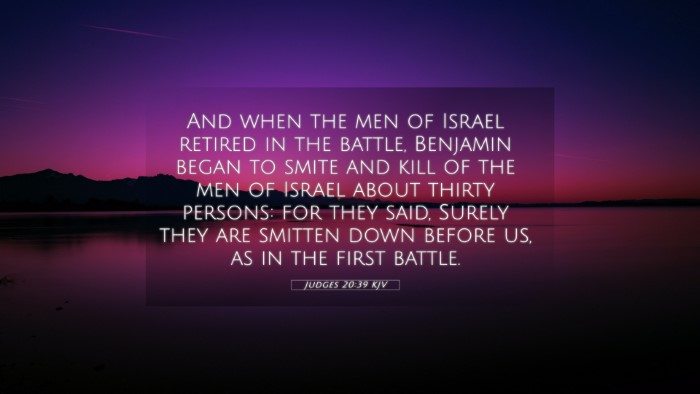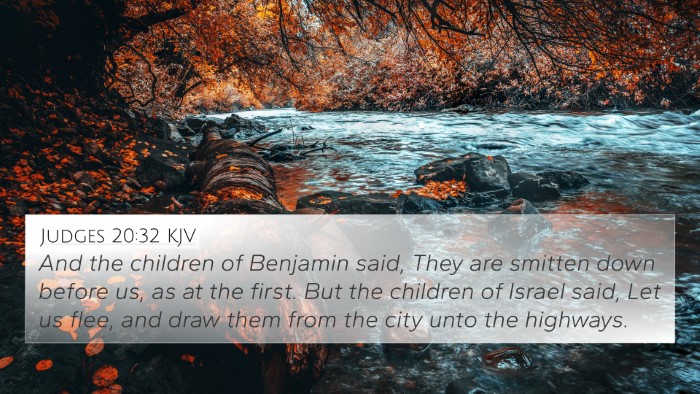Understanding Judges 20:39
Judges 20:39 reads:
"And the men of Israel turned again, and the men of Benjamin were amazed; for they saw that evil was come upon them." (Judges 20:39 KJV)
This verse occurs in the context of a civil conflict between the tribe of Benjamin and the rest of Israel. It highlights a moment of realization for the Benjaminites, signifying a turning point in their engagement with the other tribes.
Verse Meaning and Insights
The meaning of Judges 20:39 can be drawn from several key commentaries:
-
Matthew Henry's Commentary:
Henry comments on the surprise and shock of the Benjaminites when faced with the overwhelming force of the Israelites. His interpretation emphasizes the moral dimension of the conflict, suggesting that the Benjaminites were initially blinded by pride and unity in their wrongdoing but were forced to confront the consequences of their actions.
-
Albert Barnes' Notes:
Barnes provides insight into the emotional turmoil experienced by the Benjaminites, describing how their amazement stemmed from the unexpected turn of events in battle. He notes the theme of divine judgment appearing in this account, as the Benjaminites pay a heavy price for their previous actions, illustrating a broader lesson about the repercussions of sin.
-
Adam Clarke's Commentary:
Clarke elaborates on the tactics involved in the battle, suggesting that the strategy employed by the Israelites allowed them to capture the Benjaminites off-guard. He emphasizes the importance of divine intervention in the affairs of men, positing that the events are a sobering reminder of how quickly circumstances can change, particularly when one is engaged in wrongdoing.
Cross-References and Connections
This verse connects with several other scripture passages, providing a deeper thematic understanding:
- Judges 19:30: This verse highlights the horrifying events that led to the tribes gathering against Benjamin.
- 1 Samuel 15:23: Discusses the consequences of rebellion against God, noting that rebellion is as witchcraft, showing the spiritual implications comparable to those in Judges.
- Proverbs 16:18: "Pride goes before destruction," correlating with the Benjaminites' initial pride leading to their demise.
- Galatians 6:7: "Do not be deceived: God is not mocked, for whatever one sows, that will he also reap." This reflects the theme of reaping what one sows evident in the plight of the Benjaminites.
- Psalm 75:7: "But God is the judge: he putteth down one, and setteth up another," illustrating God's control over the outcome of conflicts.
- Romans 12:19: "Vengeance is mine; I will repay, saith the Lord." This verse brings in the aspect of divine justice seen in the turmoil of the tribes.
- Hebrews 10:31: "It is a fearful thing to fall into the hands of the living God," linking God's judgment to the fearful realities faced by the Benjaminites.
Thematic Bible Verse Connections
This verse illustrates broader themes of justice, divine intervention, and the consequences of sin:
- Justice and Retribution: Judges 20:39 reminds us that God administers justice, often through communal or societal consequences.
- This aligns with: Micah 6:8 which underscores the expectation of justice and humility in one's walk with God.
- Divine Sovereignty: The outcomes in human affairs align with divine purposes; Proverbs 21:1 emphasizes that the king's heart is in the hand of the Lord.
- Consequences of Sin: The moral decay leading to tribal conflict is a theme echoed in 2 Corinthians 5:10, which speaks of all being accountable for their actions.
Conclusion
Judges 20:39 serves as a critical point in the narrative of the Book of Judges, illustrating the themes of divine justice and the dire consequences of sin. Through cross-referencing other Bible verses, we can extract important lessons not just about the particular historical events but also about the spiritual truths that transcend time. It offers an invaluable opportunity for comparative Bible verse analysis and thematic exploration, enriching our understanding of Scripture.
Tools for Bible Cross-Referencing
For those seeking to delve deeper into the connections and meanings of Scripture, utilizing various tools can significantly enhance your study:
- Bible concordances help locate specific verses and themes.
- Cross-reference Bible study guides point to related scriptures for thematic connections.
- Using a Bible cross-reference system can aid in identifying relationships between passages.
- Resources for Bible chain references allow for tracking connections across books of the Bible.
Further Study Recommendations
As you explore Judges 20:39 and its surrounding context, consider the following:
- How do conflicts in the Old Testament reflect God’s character?
- What role does community play in the morality depicted in these stories?
- How can modern readers learn from the failures and successes of biblical figures?



